Info
11 Proven Benefits of Turmeric Tea for Skin, Preparation, and Precaution
Turmeric is an inevitable herbal spice. It cures ailments and supports skin health, digestion, stress management, and the immune system when used as a drink, food ingredient, and supplement. Among all, the benefits of turmeric tea for skin and digestion are promising and evident. Read on to learn more about the benefits of turmeric tea.
Turmeric is one of the important spices that has been used for wound healing and health ailments as well as cooking.
It is a root or rhizome of the Curcuma longa plant. This bright yellow spice from the same family as ginger has a lot of antibiotics, anti-inflammatories, antimicrobial, antiseptic, antibacterial, healing properties, and more health benefits.
The root and powder have been used in the food, health, and beauty industries for hundreds of years. However spice has been used in Ayurveda and Chinese medicine systems for thousands of years as an herbal remedy for cough, fever, flu, colds, wound healing, skin ailments like infections, redness, pimples, and many others.
India is the highest supplier of turmeric with a 78% export rate. So, turmeric tea and using turmeric powder in drinks are popular in India and surrounding countries.
Having turmeric tea is the best way to obtain the benefits of turmeric for skin and health. The tea gives a gentle massage and relaxation to the tissues, muscles, nerves, and other parts of the body. Herbal teas are a great natural remedy for stress, anxiety, depression, tiredness, headache, migraines, and so on.
Related: Health benefits of Moringa herbal tea
Though different types of research are going on to learn the effect of turmeric on the human body for health, healing, and immunity, many believe the benefits of turmeric for the skin are real and promising.
What is Turmeric Tea?
Turmeric is used as spice, powder, tinctures, supplements, and is also available in other beauty and skincare products now.
Maximum credits go to a bioactive component called Curcumin in turmeric.
This component includes antioxidants and anti-inflammatory properties which are beneficial for boosting immunity, healing ailments, and improving natural beauty.
Turmeric tea and its supplements are often recommended with a high concentration of this component because curcumin has low bioavailability so the human body slowly can access and absorb the compound.
Turmeric tea is brewed from turmeric powder or turmeric root. It is the easiest and most effective way of consuming the herb.
There is no limited dose followed for intake of turmeric, mostly the daily intake of this spice is set based on the condition to which the spice is used to treat.
But, if we analyze the available research, we can see that for adults the dose could be between 400 and 600 mg of turmeric powder with three sittings a day. For turmeric root, whether it is fresh or dried, it could be from 1 to 3 gm in a day.
Turmeric tea, oral supplements, and topical treatments with the spice might be new to the Western world, but in the East, it is an everyday herb or spice found in food, traditional home remedies, and beauty care routine.
Methods or ways to apply turmeric on skin or body may need more research, but for consumption, Turmeric tea also called Golden Drink is the best choice, no doubt.
Turmeric tea can be consumed with milk as a Turmeric latte or without milk as a plain herbal tea mixing a turmeric brew in hot water and a few drops of honey.
In Western countries, turmeric latte is often prepared without espresso or caffeine but they add turmeric, ginger, almond milk, and natural sugar in the latte.
Turmeric tea prepared from an ancient herb from India showed its effects on all skin problems from acne to arthritis so the whole world is sipping on it.
Let’s dig deeper and study the possible benefits of turmeric tea for skin and body.
11 Benefits of Turmeric Tea for Skin
Turmeric tea benefits skin in more ways than one. It removes acne, pimples, dark spots, dark patches, and many more.
Here we will discuss some of the science-backed benefits of drinking turmeric tea.
Turmeric Tea for Natural Skin Glow
Curcumin contains anti-inflammatory and antioxidant properties which naturally offer a glow to the skin. Turmeric contains revive and revitalizing properties that help the skin get its natural glow.
Drinking turmeric tea in the morning cleanses the body and boosts skin health from the inside.
Turmeric Tea for Psoriasis
Studies found that turmeric may help psoriasis by managing flares and related symptoms with its anti-inflammatory and antioxidant properties.
Psoriasis is an autoimmune disease in which skin cells build upon each other due to inflammation and create scaly patches that may after leads to bleeding.
Anti-inflammatories enzymes in curcumin prevent those cell production and bleeding skin patches.
Studies suggest that oral and topical application of turmeric for 9 to 12 weeks treat symptoms of plaque psoriasis.
The National Psoriasis Foundation suggests turmeric tea or supplements or in the food for affected people. However, they also insisted on consulting with the doctor for the right dosage.
Turmeric Tea for Wounds
Everyone knows the wound healing benefits of turmeric. The anti-inflammatory and antioxidant activities in the spice reduce inflammation and oxidative stress. It relieves pain associated with inflammation on wounds.
Intake of turmeric tea and drinks may speed up healing. Turmeric can also affect body tissue generation and collagen production thereby it helps keep the skin healthy.
Turmeric Tea for Scabies
A study in India in 2017 has found turmeric combined with neem was 97% effective in scabies treatment. Scabies is a skin condition created by tiny mites that cause skin rashes.
The antimicrobial, antiseptic, antibacterial, antibiotic properties of both herbs can be the reasons for this benefit.
Turmeric Tea for Acne
If you are taking home remedies for acne and acne scars, you can add turmeric to your regimen. Turmeric is an excellent exfoliator that targets the pores and soothes the skin.
The pore cleaning properties, anti-inflammatories, and scar-reducing properties of turmeric remove acne breakouts.
Acne is caused by Propionibacterium acnes, a type of bacteria that can be treated with antibiotics.
The antibiotics in herbs and spices can do this as the demand for antibiotic drugs is increasing due to their resistance.
A study in 2013 showed that curcumin and lauric acid can fight off acne bacteria.
Though most of the acne treatments with turmeric recommended topical usage, to speed up the results and better healing, also have a turmeric tea along with the topical treatment.
Turmeric Tea for Sun Damages
Environmental pollution and UV rays from the sun are the most important stressors that affect skin health. These factors can lead to fine lines, sunburns, wrinkles, pigmentation, even the worst condition like skin cancer. Turmeric can help you escape these scenarios and keep you healthy.
In an animal study, antioxidants in turmeric improve sun damage in rats. It may be a possible indication that the spice can translate the same effect to humans.
Pollution affects the body’s natural antioxidants while UV rays affect skin elasticity. Turmeric with antioxidants boosts the defense mechanism of the body by preventing free radical damage and keeping the skin soft.
You can have a cup of turmeric tea after a hectic day in the sun for internal cleansing and use a turmeric face mask in a week for external damage removal.
Turmeric Tea for Skin Lightening
Studies found that turmeric can help in lightening and brightening the skin tone with regular usage of three weeks. The powerful antioxidants and anti-inflammatory compounds in the herbal root help heal the skin and come to a healthy state.
A turmeric brewed tea can also contain the same herb. If you are worried about the topical application or don’t have time for that, you replace your caffeine in the morning with a hot turmeric tea for the benefits.
Turmeric Tea for Skin Hair Removal
A study showed that turmeric may help remove and slow hair growth in the skin. The study included 60 women who used turmeric oil for 10 weeks for underarm hair. The result showed the oil reduced hair and slowed growth.
The time for hair removal varies based on hair texture.
If you are considering turmeric for hair removal, it is recommended for topical application rather than as a drink.
Turmeric Tea for Arthritis
Curcumin in turmeric is a powerful plant compound that gives a bright color to the spice with many healing properties. The anti-inflammatories in curcumin may help to reduce the symptoms of arthritis which causes the most common skin conditions.
A study in 2017 having 200 adults who reported rheumatoid arthritis in America found that about 63% of them used non-vitamin supplements to treat the symptoms including turmeric as the prominent product.
Turmeric Tea for Irritable Bowel Syndrome
Digestion and bowel movements are also important for healthy skin. Turmeric has been used for indigestion and other stomach-related problems for a long time.
Even studies show that turmeric may aid reduce the pain caused by irritable bowel syndrome and improve the conditions in those people.
If you have digestive health problems and poor gut health, it could lead to skin problems like spots, inflammation, eczema, and rosacea.
An animal study in 2012 found that turmeric may help to reduce the time of gastric emptying, that is the time it took for the food to clear from the stomach to the small intestine.
Turmeric Tea for Skin Conditions
Though there is not enough evidence to provide turmeric benefits for skin conditions, we still have studies that suggest turmeric intake as a treatment for eczema, lichen planus, and other skin issues.
As interest in herbal supplements and drinks is increasing, we can expect well-detailed and defined studies on turmeric for affirming the benefits of turmeric tea for skin and other health conditions.
7 Health Benefits of Turmeric Tea
Turmeric Tea for Immunity
Having turmeric tea regularly in the morning can improve your immune power. The spice has antioxidants, antiviral, anti-inflammatory, and antibacterial properties to aid the immune system.
Along with these properties, curcumin in turmeric was found to work as an immune modulator that can aid regulate functions of immune cells against cancer.
Turmeric Tea for Cardiovascular Health
Studies and research show that curcumin can have a great effect on cardiovascular health and complications. The herb acts as an anti-inflammatory and antioxidant to support heart health.
A study in 2012 showed that eating 4gm turmeric a day before 3 days and after 5 days of coronary artery bypass surgery decreased the risk of heart attack to 17%.
Turmeric Tea for Cancer
The anti-cancer properties of turmeric are tested in different clinical studies for therapeutic purposes.
The presence of high antioxidants and anti-inflammatories in turmeric aids to reduce the risk of cancer and prevents cancer growth by averting free radical damages to body cells.
There are many studies on turmeric that have shown that spice has beneficial anti-tumor properties that may stop tumor growth and cancer spread.
A review in 2014 showed that about 2000 study articles have been published in medical journals using keywords cancer and curcumin.
Aside from that, the use of turmeric for cancer treatment along with radiation therapy and chemotherapy is under investigation.
Turmeric Tea for Alzheimer’s Disease
Herbal teas including turmeric tea are great remedies for neurodegenerative conditions. It reduces stress, depression, anxiety, insomnia, and calms the brain. The herbal tea improves happy hormones and relaxes the brain nerves.
Related: Health benefits of Ashwagandha herbal tea
Studies have found that turmeric may reduce the risks of many neurodegenerative conditions. The herb’s antioxidants and anti-inflammatories are behind this effect. These properties reduce chances of free radical damages to cells, inflammation, and plaques development which are associated with Alzheimer’s disease.
Turmeric may also be beneficial in delaying aging and its symptoms associated with neurodegeneration.
Turmeric Tea for Liver Health
Due to its antioxidant properties, turmeric removes toxins from the body and supports liver health.
Alongside, the spice may increase digestive fluid bile production in the liver and gallbladder while protecting the liver cells from oxidative stress and free radical damages.
Turmeric Tea for Diabetes
Traditional medicine from Asian countries has used turmeric for diabetes and blood sugar control for many decades. Even modern studies with animal and human subjects have found that turmeric may have potent anti-diabetic properties with eliminating inflammation, regulating insulin levels, and reducing food intake time of the small intestine.
Turmeric Tea for Lungs
Studies suggest that turmeric with anti-inflammatory and antioxidant properties may help decrease symptoms and side effects of chronic lung conditions.
A medical study review in 2017 has explained that despite having limited evidence, turmeric supplements may help cure asthma, lung cancer, injuries, and chronic obstructive pulmonary disease (COPD).
How to use Turmeric for Skin?
Turmeric powder can be intaken orally or applied topically.
Drinking turmeric tea is better than using it on the skin, how?
When you need turmeric for wounds, infections, or anything that needs to be treated quickly, topical application is suggested. But for skin conditions and ailments, drinking turmeric tea regularly will be best as it permanently solves the problems and prevents them from occurring again by boosting the overall body functions and health.
Topical application of turmeric can only cure the problems in the applied area but when you consume turmeric tea it heals the entire body, boosts energy, calms the brain, soothes the mind, and improves the quality of life.
Taking herbal drinks and supplements is the best practice of keeping the well-being of the body, mind, and soul.
How to prepare Turmeric Tea
You can prepare turmeric tea using turmeric powder or roots. Otherwise, try specific infused turmeric tea from Moolihai.com that has a high concentration of curcumin. It is a biological component in turmeric that has anti-inflammatories and immune-boosting properties.
Turmeric tea using powder
- Boil 4 cups of water.
- Add 1 to 2 teaspoons of turmeric powder to the water.
- Simmer the mixture for 10 minutes.
- Strain the tea in a cup and let it cool for a minute to drink.
Turmeric tea from store product
- Boil a cup of water.
- Turn off heat and add a tea bag or one teaspoon of turmeric tea powder.
- Close with a lid and Steep for 5 minutes.
- Strain the tea in a cup and drink it.
The benefits of turmeric tea for skin can be improved when you add additional spices and herbs to it.
Add honey for taste and enhance the antimicrobial properties of the tea.
For cough relief, you can add black pepper powder to the tea for better relief. A chemical compound called piperine in pepper helps with the high absorption of curcumin. It also adds a spicy flavor to the tea.
Turmeric needs healthy fats for quick dissolution, so adding whole milk, almond milk, coconut milk, a spoon of coconut oil or ghee will help with absorption.
Even juice or lemon or ginger also gives a unique taste and increases antioxidant benefits.
Precaution of using turmeric for your skin
Using turmeric in tea or directly on the skin should be followed with caution. Be careful about the dosage, type of product, and its reaction to your body.
Taking turmeric too much in one sitting is not safe, test with a small dose for the first time and note its effects on your body.
If you want to use a turmeric face mask or face pack, do a patch test to check its safety on your skin condition. Apply the turmeric paste to any place of your skin and wait for 24 hours to see the reaction.
Turmeric applied to the skin can stain the skin temporarily. Though it is normal, if you have sensitive skin or serious allergy problems, direct application of turmeric may cause redness, irritation, and swelling.
This is where Turmeric tea comes to the rescue.
As far as we know, a high dose of turmeric more than 4000 mg in a day may cause side effects including digestive issues like diarrhea, nausea or skin rashes, and headache.
Side Effects of Turmeric Tea
Pregnant and Breastfeeding Women
Turmeric tea can stimulate the uterus, so pregnant women should avoid it. Also, there is not enough information available on the safety of Turmeric for breastfeeding mothers.
Gallbladder Issues
If you have gallstones or any gallbladder issues, avoid turmeric tea.
Diabetes
Though turmeric helps with diabetes, it is a serious health condition so people with diabetes should consult a doctor before taking it.
Iron Deficiency
Turmeric may interfere with iron absorption so people who have iron deficiency or taking iron supplements should consume it with medical supervision.





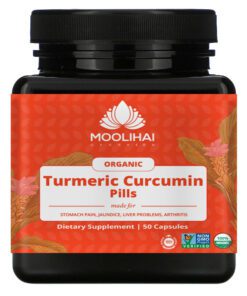
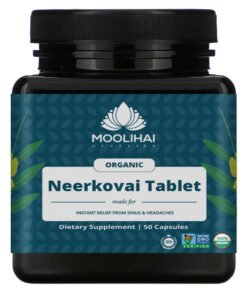
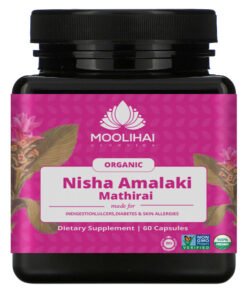
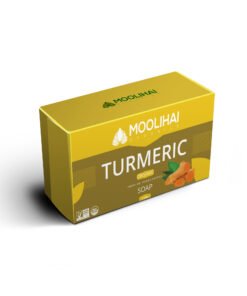

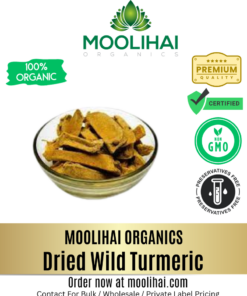

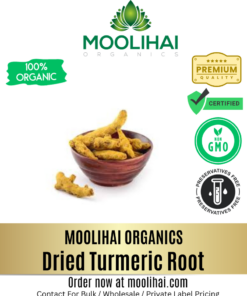

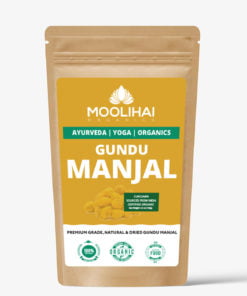
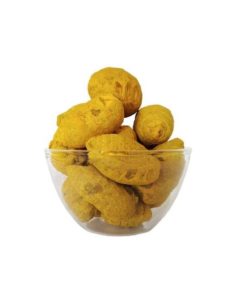
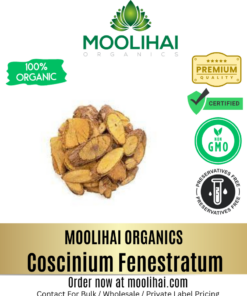

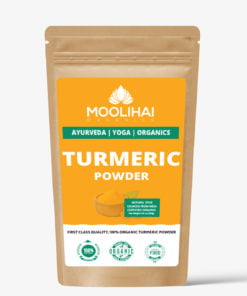

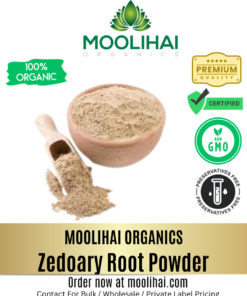

Ponnatharam Stone (Raw) | For Permanent Hair Removal
Vengai Paal | Black Bindi | Dhrishti Pottu | Vengai Pottu for Babies | 100% Natural
Dried Avaram Senna Flower / Cassia Senna Auriculata / Aavaram Poo / Tarwar / Amaltas Leaves / Senna Auriculata / Avaram Poo / Sanay / Alexandrina / Tanner’s Cassia flower
Natural Dried Moringa Flower – Moringa Oleifera – Drumstick Tree Flower – Murungai Poo – Munagaku Flower
Akasa Garudan Kilangu / Redfruit Creeper / Corallocarpus Epigaeus
Original Edible Camphor | Pacha Karpooram | Bhimseni Camphor
Pure Ponnatharam Powder For Hair Removal
Saussurea Obvallata Seeds / Brahmakamal Seeds / Queen of the night / Sacred Saussurea Kon Kapfu / Brahma Kamalam / Nishagandha
Insulin Leaf Powder / Chamaecostus Cuspidatus / Costus Pictus / Spiral Ginger / Insulin Powder / Costus Igneus
Kaunch Beej Powder |Poonaikali | Velvet Bean Powder | Mucuna Pruriens | Kapikacchu | Natural Nervine Tonic & Muscle Builder
Achu Pottu for Babies | Bindi Mould Set | Baby Seratta – 1 Set
Aalam Pazham / Banyan Fruit Powder / Ficus Benghalensis / Marri Palu / Bargad / Dodda Alada Mara / Peraal / Vat Vriksha Powder